Business
European Union Announces Financial Assistance to Support Reforms in Afghanistan

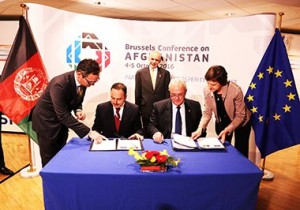 The European Commission has published a press release stating that The European Commission announced new financial assistance to the Afghan Government in the form of a State-building contract in Brussels conference on Tuesday. Through State-building contracts, the European Union provides direct budget support to countries in fragile and transitional situations.
The European Commission has published a press release stating that The European Commission announced new financial assistance to the Afghan Government in the form of a State-building contract in Brussels conference on Tuesday. Through State-building contracts, the European Union provides direct budget support to countries in fragile and transitional situations.
The signing ceremony of the State-building contract took place today at the margins of the Brussels Conference on Afghanistan. The agreement was signed by the Commissioner for International Cooperation and Development, Neven Mimica, and the Afghan Minister of Finance, Eklil Ahmad Hakimi in the presence of President Ashraf Ghani.
At the signing ceremony, Commissioner for International Cooperation and Development, Neven Mimica, said: “Today’s signature is an important step forward for the EU’s development partnership with the Afghan Government. The EU is committed to increasing the effectiveness of our aid, as a sign of our confidence in the Afghan side to deliver on its reform program. As the State-building contract is indeed a contract, both sides agree to play their part. We will provide the funding on the basis of satisfactory progress in key reform areas.”
The Minister of Finance of Afghanistan, Eklil Ahmad Hakimi, said: “The State Building Contract is an effective mechanism that aligns EU’s development assistance with the Afghanistan’s reform agenda. As an on-budget funding, it gives the Government of Afghanistan the required fiscal space to implement its development priorities that will improve the lives of the Afghan people.”
This first State-building contract for Afghanistan will provide up to €200 million in direct budget support over a two-year period from 2017 onwards. It will assist the Government of Afghanistan in defining its own strategic development priorities and policies, as outlined in the new Afghanistan National Peace and Development Framework. The Afghanistan National Peace and Development Framework will be presented at the main event of the Brussels Conference on Afghanistan. It will provide a credible strategic framework for Afghanistan’s development towards increasing self-reliance. The State-building contract will support more effective budgetary management and the fight against corruption.
A robust policy dialogue on reform progress in public policies, the macroeconomic framework, public financial management, as well as on transparency and oversight, will be put in place with the Afghan Government and determine the payments under this contract. The EU will closely coordinate with other partners and disburse when specific reform targets are reached.
The European Union aims to deliver assistance in an effective and flexible way by making use of partner countries’ systems.
For the period 2014-2016, the EU strategy for Afghanistan pursued four overall objectives: promoting peace, stability and security in the region; reinforcing democracy; encouraging economic and human development; and fostering the rule of law and respect for human rights.
The current EU development assistance program (also known as the Multi-annual Indicative program) for the period 2014 – 2020 has four focal areas: agriculture and rural development; health; rule of law and policing; as well as governance and democratization. The EU’s financial support amounts to €200 million per year, or €1.4 billion for the whole period. The State-building contract is part of the current development program.
Published by European Commission

Business
Export volume totals over $140 million in last month of 1402
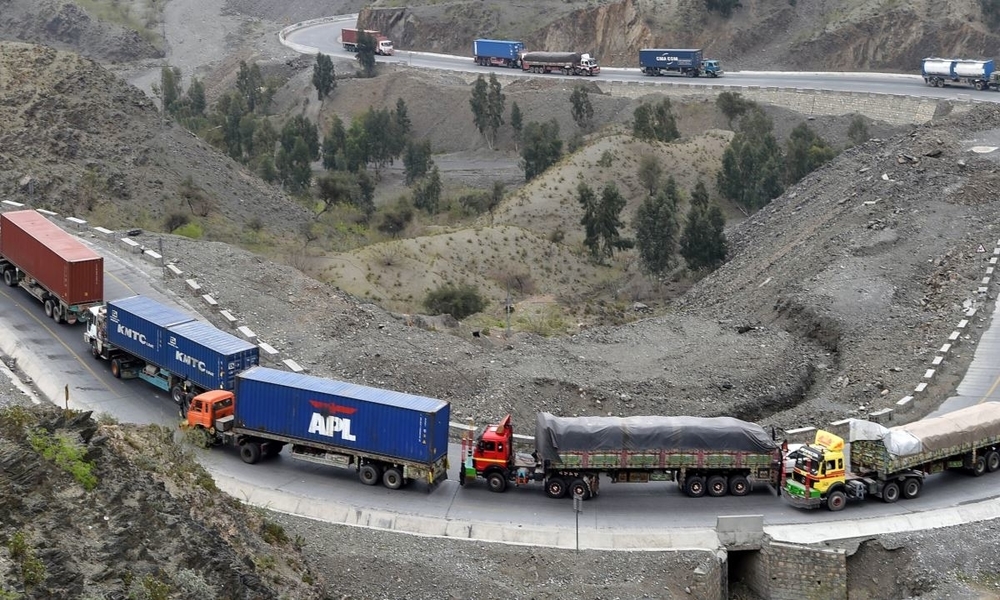
The National Statistics and Information Authority (NSIA) confirmed Tuesday that in the last month of solar year 1402, (March 2024) Afghanistan’s exports totaled $141.1 million and imports totaled $789.6 million.
This was down from $174 million for exports in the same period in 1401. However, imports increased by $99.2 million in 1402, up from $690.4 million.
Most exports in the last month of 1402 went to Pakistan, India and the United Arab Emirates, while in the last month of 1401 exports went to Pakistan, India and China.
Business
Afghanistan-Kazakhstan chamber of commerce opens in Herat
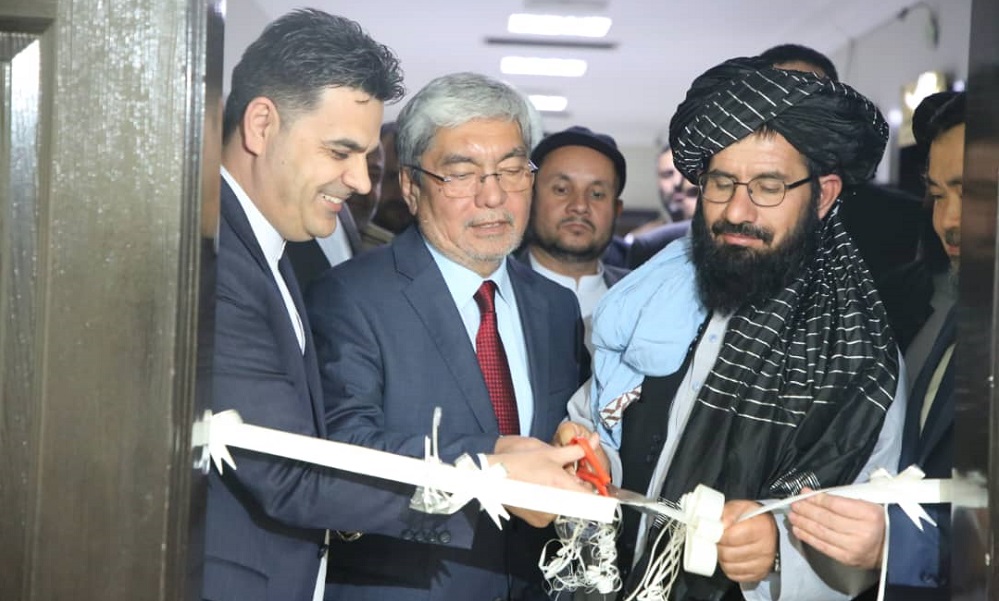
The Ministry of Interior said the governor of Herat province Islam Jar met with Alim Khan Yasin Gildaye, Ambassador of Kazakhstan to Afghanistan, to discuss various issues around trade.
According to the ministry, the two sides discussed the expansion of trade facilities, increasing the volume of trade exchanges between traders of the two countries, reducing customs tariffs, solving the challenges of traders and issuing visas to them.
The Afghanistan-Kazakhstan Chamber of Commerce has been opened in Herat in order to facilitate and increase trade between the two countries.
Business
Afghanistan reaches self-sufficiency in production of 133 items: MoIC
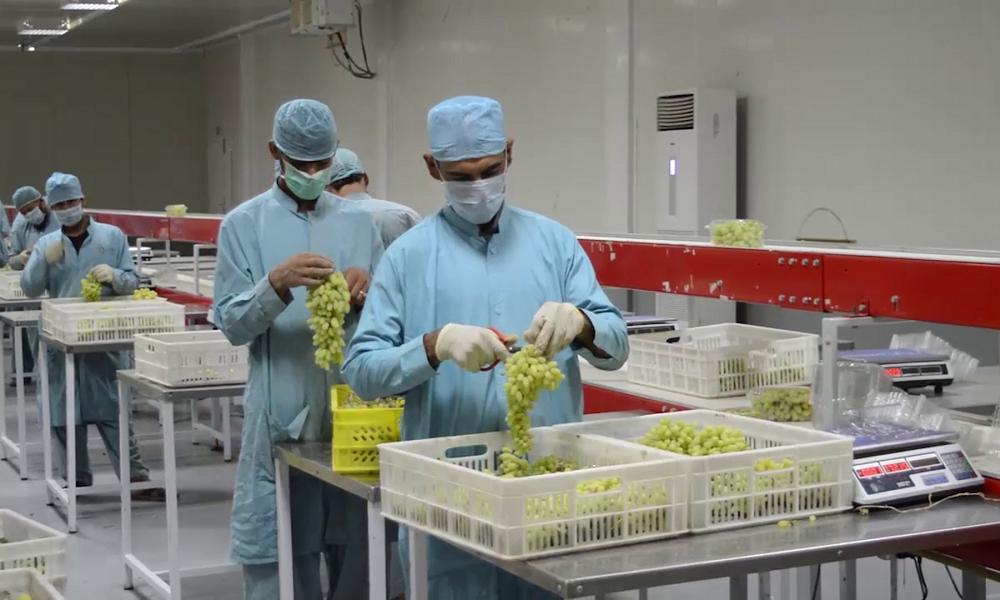
The Ministry of Industry and Commerce (MoIC) says Afghanistan has reached self-sufficiency in 45 sectors and the production of 133 items, and that the ministry is striving to change Afghanistan from an importing country to an exporting one.
The ministry officials said that for this purpose, supporting domestic products and attracting investment is essential.
The ministry’s spokesman Abdul Salam Jawad Akhundzada emphasized increasing the use of domestic goods and products in government and national projects and added that efforts have also begun to find a market for domestic products inside and outside the country.
“We have reached self-sufficiency in 133 items of production, which is 45 sectors, and also we reached the capacity of semi-self-sufficiency in 95 items of production, which is 27 sectors,” he said.
Meanwhile, the Chamber of Industries and Mines (ACIM) says over the past two and a half years, more attention has been paid to the development of domestic production and it is also expanding.
The chamber officials stressed expanding the culture of using domestic products in government projects.
“I think that the government is one of the biggest consumers in the market if it uses domestic products in all its development projects,” said Abdul Nasir Rashtia, a member of ACIM.
Economic experts also said that if the use of domestic products in government projects increases, Afghanistan will quickly move towards economic independence.
-

 Sport4 days ago
Sport4 days agoACL draw to be broadcast live on ATN channels
-

 Regional5 days ago
Regional5 days agoIRGC chief warns of harsher response if Israel attacks Iran
-

 Sport3 days ago
Sport3 days agoACL fever grows as fixtures finalized
-

 Regional5 days ago
Regional5 days agoIran launches retaliatory attack on Israel with hundreds of drones, missiles
-
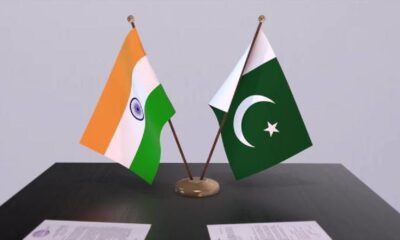
 Latest News5 days ago
Latest News5 days agoContact group on Afghanistan hits roadblock over Pakistan’s gripe with India
-

 Sport5 days ago
Sport5 days agoHetmyer powers Rajasthan win in low-scoring IPL thriller
-
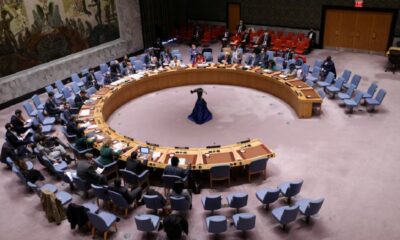
 World5 days ago
World5 days agoUN Security Council to meet Sunday on Iran attack
-

 World4 days ago
World4 days agoUS will not take part in any Israeli retaliatory action against Iran














